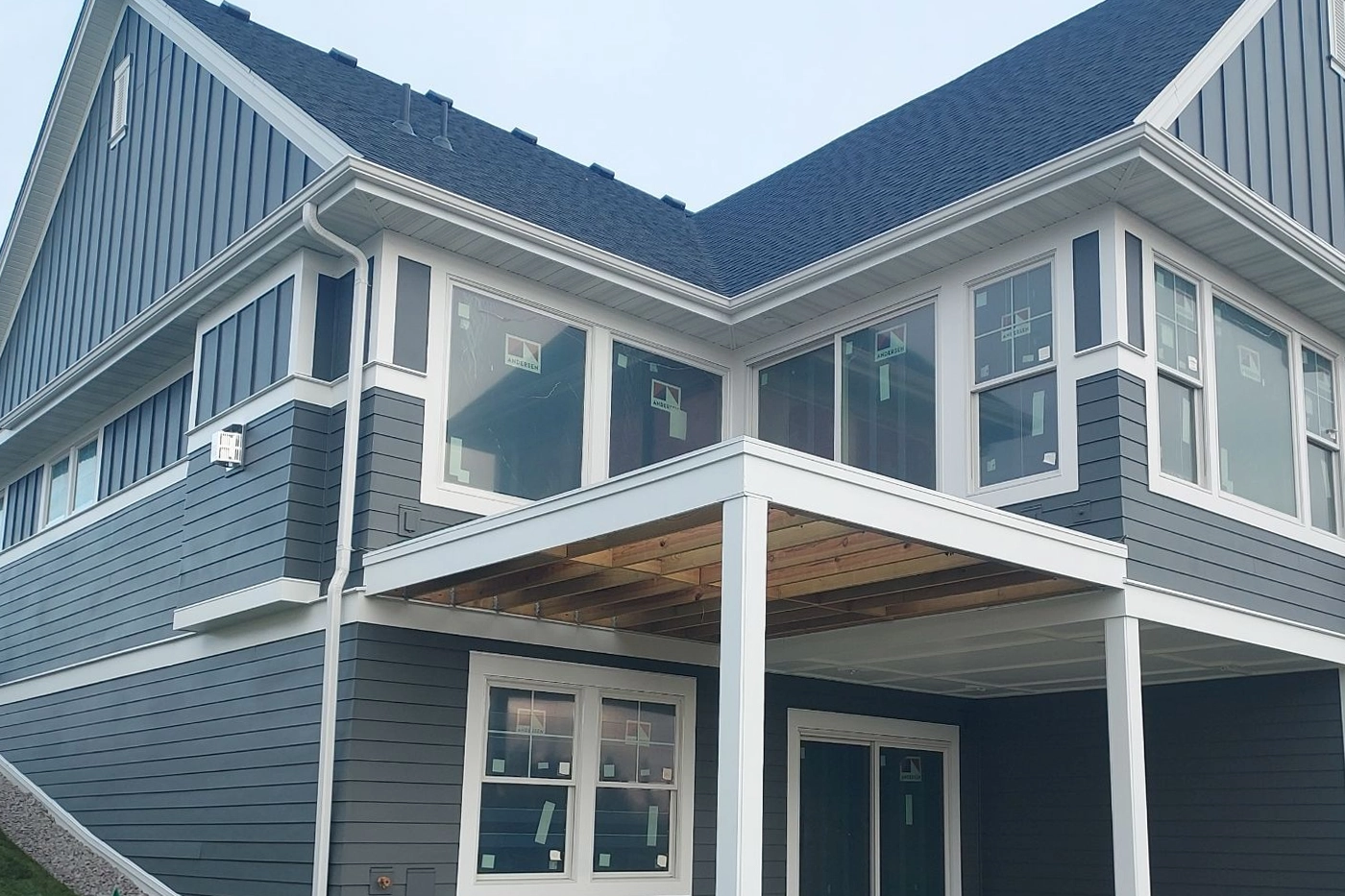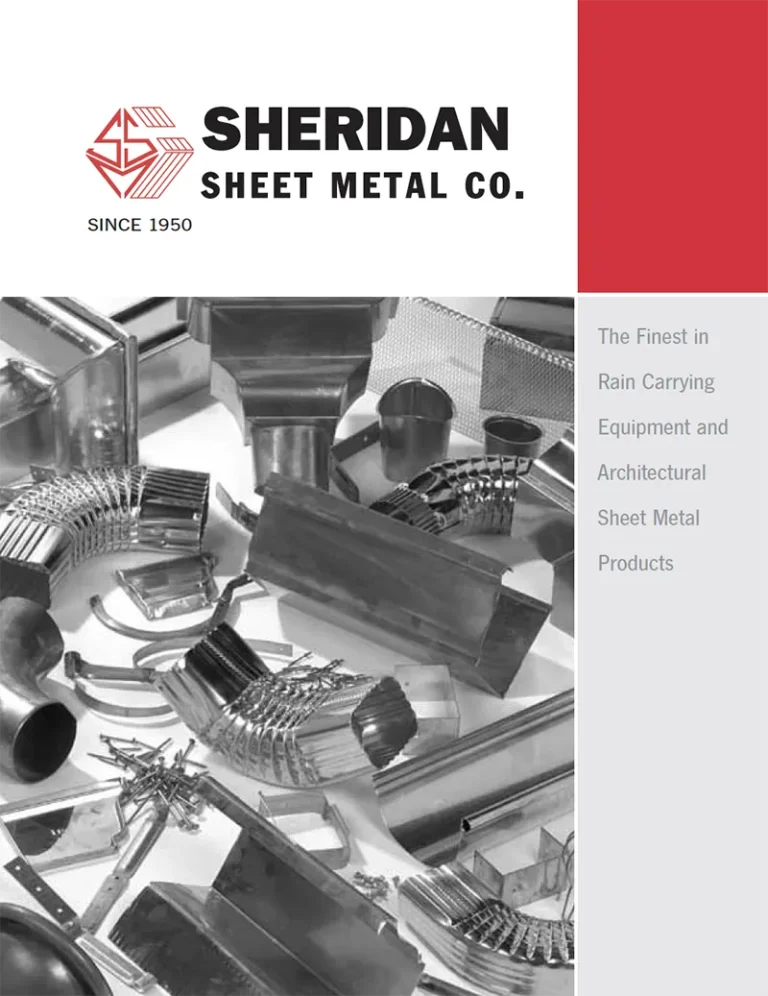Steel gutters and downspouts versus aluminum – which is right for your home? If you’re deciding between aluminum or steel gutters, you’re not alone. A lot of homeowners are asking the same question, especially in places like Minnesota, where winter doesn’t hold back.
You want something that looks great, lasts through the seasons, and won’t need constant checking or repair. You’re making smart upgrades to your home, and you’re looking for real, long-term value—not just the cheapest fix.
The truth? Not all gutters are built to handle what your home goes through in a year. Snow loads. Ice buildup. Wind. Rain. Weight.
That’s where steel gutters and downspouts make a difference. They’re built tough. They hold up better under stress. And they give you confidence that your investment will actually last.
Let’s break down how steel compares to aluminum—what lasts longer, what performs better, and what makes the most sense for homeowners who care about both form and function.
Why Gutter Material Matters
Gutters aren’t just another trim piece. They protect your home from water damage, basement leaks, foundation issues, and landscape erosion. If they fail, the problems show up fast—and often cost more than you’d like to fix.
So the question isn’t just what looks good or costs less upfront. It’s about which material will stand up to your home’s needs and the weather it faces year after year.
How Steel Outperforms Aluminum Gutters
There are some important differences when it comes to steel vs aluminum gutters. It’s important to know what they are so you can decide which one makes more sense for your home:
1. Strength That Holds Up Under Pressure
Steel is stronger than aluminum. That matters more than you might think. If you’ve ever leaned a ladder against an aluminum gutter, you know how easy it is to dent or crush it. Steel doesn’t have that problem.
In places like Minnesota, winter can bring serious snow and ice buildup. Aluminum gutters often bend, pull away, or even tear loose from the fascia under all that weight. Steel holds its shape and stays put.
2. Less Expansion Means Fewer Issues
Here’s something most people don’t think about: metal expands and contracts with temperature changes. Steel warps far less than aluminum—less than half as much.
Why does that matter? When gutters shift around, fasteners and sealants can break loose, leading to leaks, sagging, and more maintenance over time. With steel gutters, everything stays tighter and more secure, even in extreme temperatures.
3. Better Protection From the Elements
Our steel rain gutters are made with 26-gauge galvanized steel and coated inside and out with a baked-on paint finish. That double-layer paint system helps fight off rust and keeps your gutters looking sharper longer.
Most durable outdoor products that need to last—fencing, roof components, deck framing—are made from steel for a reason. Gutters should be too.
4. Tougher Downspouts That Don’t Get Crushed
Downspouts matter just as much as the gutter itself. They direct water away from your home’s foundation. But not all downspouts are built the same.
Steel downspouts are much more resistant to crushing and damage. That’s especially helpful if you have landscaping or outdoor activity near your home where someone might bump or step on one.
What About Rust?
It’s a fair question: Do steel gutters rust? Eventually, yes. But not for a long time—especially if they’re made well and taken care of.
Our steel gutters are made from galvanized steel, just like your roofing components. They come with a protective finish inside and out. If you keep them clean and clear of debris, they’ll last for decades with very little upkeep.
Are Steel Gutters More Expensive?
The short answer: not really.
The biggest cost in any gutter installation is labor. And when you compare aluminum vs steel gutters made from equal-quality materials, the price difference is small. In fact, some high-end aluminum options cost more than basic steel ones.
You’re paying for durability, and in most cases, steel gives you more value over time.
What About Seams?
You might have heard that aluminum gutters can be installed in longer lengths. That’s true in some cases. But the reality is that all gutters have seams—at corners, ends, and other transition points.
Steel gutters typically come in standard lengths. In longer runs, they may need to be lap-seamed. But modern sealants and fasteners have come a long way. And because steel expands less than aluminum, your chances of leaks are even lower.
With a proper install, seams won’t be something you have to worry about.
Do They Still Look Good?
Yes. Steel gutters can be just as beautiful as aluminum.
Our steel systems come in a wide range of colors and profiles to match the style of your home. Whether you’re going for a bold modern look or something classic and understated, there are plenty of options that blend style with performance.
Are Steel Gutters Right For Your Home?
Here’s when steel gutters and downspouts make the most sense:
- You live in a cold climate with heavy snow or ice
- You want a strong system that resists bending or pulling away
- You’re tired of worrying about dents, sagging, or gutter damage
- You value long-term performance over the lowest upfront cost
- You want a clean, finished look that adds to your home’s curb appeal
If any of these sound like you, steel might be the better choice.
The Bottom Line: Steel Gutters and Downspouts
If you’re investing in your home, don’t settle for materials that won’t last. Steel gutters and downspouts offer strength, stability, and lasting protection—especially in tough weather conditions.
When installed properly, they’re low-maintenance, visually appealing, and built to handle the job year after year.
Want It Done Right?
Choosing the right material matters—but so does choosing the right team.
At Sheridan Sheet Metal, we’ve been protecting homes in Minnesota for over 75 years. Our employees fabricate and install every gutter system with precision and care. And we’ll guide you every step of the way so you know what to expect and what you’re getting.
Let’s build something that works—and lasts. Contact us today to get a quote or ask your questions. We’re happy to help.



